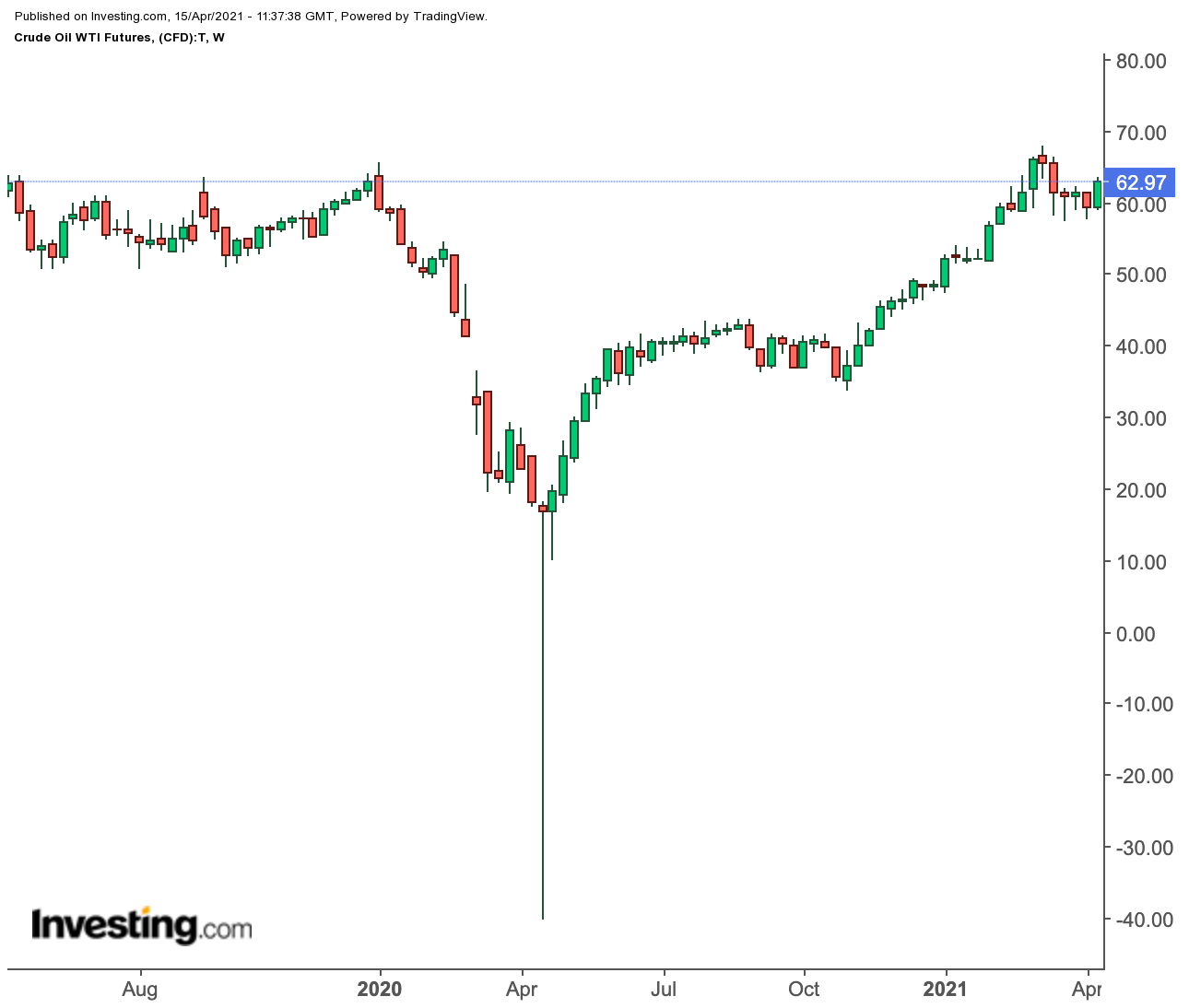Iran’s oil production and exports should be at the forefront of market watchers’ concerns as the Biden administration moves forward with negotiations with Iran. However, traders should be prepared that if the Biden administration lifts oil sanctions on Iran, the market reaction might not be what they expect.

When, in May 2018, the Trump administration announced it was withdrawing the United States from the JCPOA and reinstating sanctions on Iranian oil, the oil market was prepared. Oil prices did not increase that much initially upon the news, because the decision had already been priced in. However, in the months afterwards, Iran’s oil production fell. Iranian exports dropped. (During the period since sanctions reinstatement, Iranian oil exports have never hit zero, though they have fallen below 1 million bpd at times). As the loss of Iranian oil came to actually impact the market later in 2018, prices rose in July, August and September. In fact, back at that time, the rise in prices prompted President Trump to pressure OPEC+ to relax its production cuts. Russia and Saudi Arabia responded that summer by putting more oil on the market.
Today, the market is looking at a different but comparable situation. Currently, oil demand is still impaired from the global pandemic response, so OPEC+ is right now producing and selling less than it once was or than it is capable of supplying. As the Biden administration and the Iranian regime open talks, it is clear that the Trump-era oil sanctions will be on the table. However, it is not clear how or when they might be relaxed. The Biden administration’s messaging on this subject has been inconsistent. The lack of clarity means the market does not know what to expect.
During the U.S. presidential campaign, then-candidate Biden said he wanted to return the United States and Iran to the JCPOA. Since taking office, the Biden administration has not moved significantly towards that goal. Shortly after Biden’s inauguration, Treasury Secretary Janet Yellen said that sanctions relief would be predicated on Iran returning to its nuclear commitments regarding under the JCPOA. Iran said that compliance would not happen until the U.S. lifted the oil sanctions.
However, at the beginning of April 2021, the State Department issued a statement that seemed to indicate its position on oil sanctions was not written in stone. The State Department spokesperson said that:
“We are prepared to take the steps necessary to return to compliance with the JCPOA, including by lifting sanctions that are inconsistent with the JCPOA.”
Though he refused to provide more details, it is not unreasonable to say that the Trump-era oil sanctions could be interpreted as sanctions “inconsistent with the JCPOA.” Based on this messaging, it seems that oil market watchers should, at the very least, be prepared for the possibility that the Biden administration could lift some or all of the Iran oil sanctions as a precondition for negotiations.
Heading into 2021, Iran’s oil production was relatively constant at around 2 million bpd (according to Platts). Its exports between September and December 2020 ranged from 1.03 million bpd to 1.15 million bpd (according to TankerTrackers.com). At the beginning of 2021, Iranian oil minister Bijan Zangeneh said that Iran intends to increase its oil production two-fold and raise its exports to 2.3 million bpd. Doubling Iranian oil production would mean that Iran expects to produce at its maximum rate of 4 million bpd.
A look at Iranian exports, according to TankerTrackers.com, reveals that Iran has been following through on its production and export commitments—so far. In January, Iran exported 1.5 million bpd, an increase of 450,000 bpd from December. In February, it exported 1.3 million bpd, and in March, that number jumped to 1.8 million bpd. Production also rose, from 2.04 million bpd in December to 2.3 million bpd in March.
Clearly, Iran is not waiting for permission from the United States to increase its clandestine oil sales. What this means for the market is that if—or when—sanctions are relaxed and Iran is able to sell that oil openly, the market won’t be facing as large or sudden and increase in supply as it otherwise might have. This should mean that the price of oil should not fall much based on the news of relaxed sanctions. On the other hand, sometimes traders do react based on hype and without a full understanding of the market.
There is another point that contradicts traditional logic and might actually mean higher prices if the sanctions are relaxed. Relaxed sanctions would mean that Iran’s clandestine customers would see higher prices. Right now, Iran sells oil at an extra discount, because the sales could cause repercussions from the U.S. government. If sanctions are relaxed, there would be no reason for Iran to continue offering discounts. So, it is possible that relaxing the sanctions against Iranian oil could actually push prices for the sale of physical oil up, rather than down.
